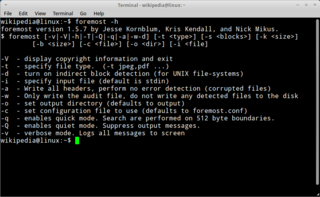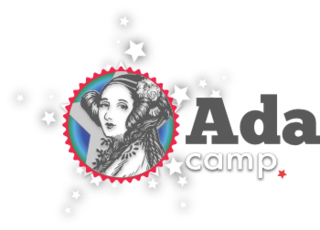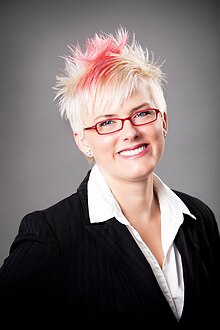ext3, or third extended filesystem, is a journaled file system that is commonly used by the Linux kernel. It used to be the default file system for many popular Linux distributions. Stephen Tweedie first revealed that he was working on extending ext2 in Journaling the Linux ext2fs Filesystem in a 1998 paper, and later in a February 1999 kernel mailing list posting. The filesystem was merged with the mainline Linux kernel in November 2001 from 2.4.15 onward. Its main advantage over ext2 is journaling, which improves reliability and eliminates the need to check the file system after an unclean shutdown. Its successor is ext4.

GNU GRUB is a boot loader package from the GNU Project. GRUB is the reference implementation of the Free Software Foundation's Multiboot Specification, which provides a user the choice to boot one of multiple operating systems installed on a computer or select a specific kernel configuration available on a particular operating system's partitions.

Linux Australia is the national, Australian Free and Open Source Software Community organisation. It was founded in 1997 and formally incorporated in New South Wales as a non-profit organisation in 1999. Linux Australia aims to represent Australian Free and Open Source Software communities and to support and collaborate with related groups, including Linux User Groups in Australia.
LinuxChix is a women-oriented Linux community. It was formed to provide both technical and social support for women Linux users, although men are encouraged to contribute. Members of the community are referred to as "a Linux chick" (singular) and "LinuxChix" or "Linux Chix" (plural) regardless of gender.
These tables provide a comparison of operating systems, of computer devices, as listing general and technical information for a number of widely used and currently available PC or handheld operating systems. The article "Usage share of operating systems" provides a broader, and more general, comparison of operating systems that includes servers, mainframes and supercomputers.
ext4 is a journaling file system for Linux, developed as the successor to ext3.

The Sleuth Kit (TSK) is a library and collection of Unix- and Windows-based utilities for extracting data from disk drives and other storage so as to facilitate the forensic analysis of computer systems. It forms the foundation for Autopsy, a better known tool that is essentially a graphical user interface to the command line utilities bundled with The Sleuth Kit.
Btrfs is a computer storage format that combines a file system based on the copy-on-write (COW) principle with a logical volume manager, developed together. It was founded by Chris Mason in 2007 for use in Linux, and since November 2013, the file system's on-disk format has been declared stable in the Linux kernel.
In computer operating systems, union mounting is a way of combining multiple directories into one that appears to contain their combined contents. Union mounting is supported in Linux, BSD and several of its successors, and Plan 9, with similar but subtly different behavior.
aufs implements a union mount for Linux file systems. The name originally stood for AnotherUnionFS until version 2.
Next3 is a journaling file system for Linux based on ext3 which adds snapshots support, yet retains compatibility to the ext3 on-disk format. Next3 is implemented as open-source software, licensed under the GPL license.

Melina Sydney Padua is a graphic artist and animator based in London, England. She is the author of The Thrilling Adventures of Lovelace and Babbage steampunk comic, and her animation work appears in several popular Hollywood films.
The O'Reilly Open Source Award is presented to individuals for dedication, innovation, leadership and outstanding contribution to open source. From 2005 to 2009 the award was known as the Google–O'Reilly Open Source Award but since 2010 the awards have only carried the O'Reilly name.
The Ada Initiative was a non-profit organization that sought to increase women's participation in the free culture movement, open source technology and open culture. The organization was founded in 2011 by Linux kernel developer and open source advocate Valerie Aurora and open source developer and advocate Mary Gardiner. It was named after Ada Lovelace, who is often celebrated as the world's first computer programmer, as is the Ada programming language. In August 2015, the Ada Initiative board announced that the organization would shut down in October 2015. According to the announcement, the Initiative's executive leadership decided to step down, and the organization was unable to find acceptable replacement leaders.

Foremost is a forensic data recovery program for Linux. Foremost is used to recover files using their headers, footers, and data structures through a process known as file carving. Although written for law enforcement use, the program and its source code are freely available and can be used as a general data recovery tool.

Mary Gardiner is an Australian Linux programmer who was director of operations at the Ada Initiative, described as a "non-profit organization dedicated to increasing participation of women in open technology and culture". She was a council member of Linux Australia until September 2011. In 2012, Gardiner and Ada Initiative co-founder Valerie Aurora were named two of the most influential people in computer security by SC Magazine.
Little Miss Geek is a campaign that aims to inspire young women to consider careers in the technology and video-games industries. Little Miss Geek is the non-for-profit subsidiary of Lady Geek, a campaigning agency which aims to make technology more accessible and appealing to women.

AdaCamp was a series of unconferences organized by the Ada Initiative. AdaCamp was the only conference that focused on women's participation in open technology and culture, including the development of free and open source software and contributions to projects like Wikipedia. AdaCamps were among the projects and resources the Ada Initiative provided to make workplaces more friendly for women.

Coraline Ada Ehmke is an American software developer, open source advocate, and Founder and Executive Director of the Organization for Ethical Source, based in Chicago, Illinois. She began her career as a web developer in 1994 and has worked in a variety of industries, including engineering, consulting, education, advertising, healthcare, and software development infrastructure. She is known for her work in Ruby, and in 2016 earned the Ruby Hero award at RailsConf, a conference for Ruby on Rails developers. She is also known for her social justice work and activism, writing the Contributor Covenant and Post-Meritocracy Manifesto, and promoting the widespread adoption of codes of conduct for open source projects and communities.
Sage Sharp is a software engineer who has worked on the Linux kernel, including serving on the Linux Foundation's Technical Advisory Board for two years.








